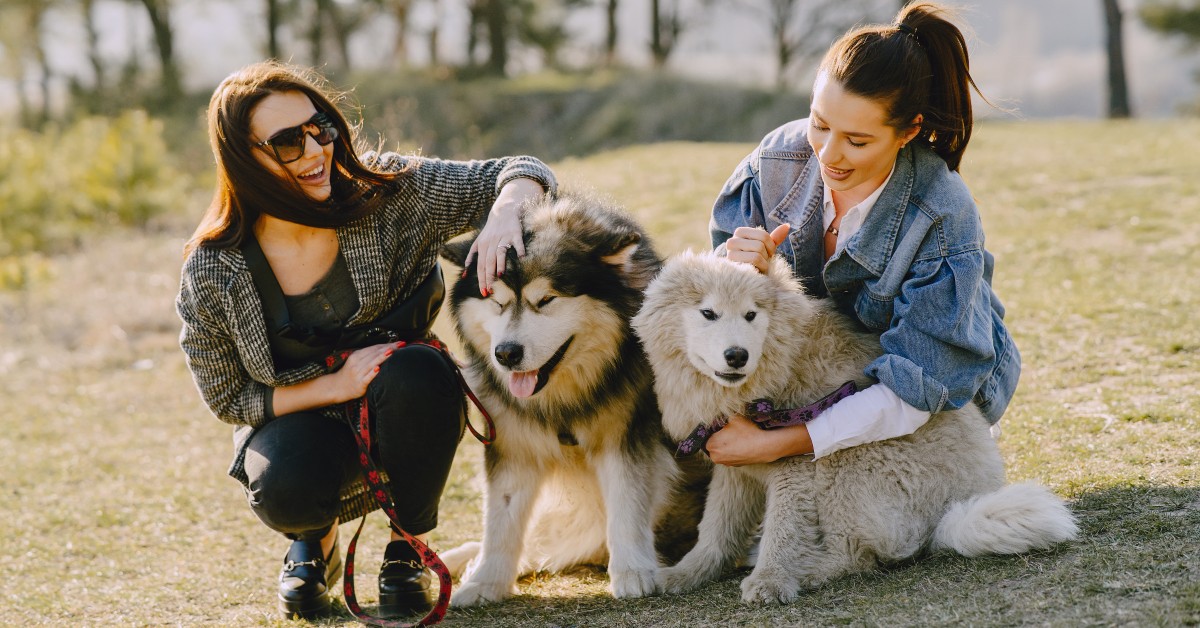Does My Dog Need an Animal Behaviorist?
Behavioral problems are common in dogs but can often be resolved with intervention from an animal behaviorist.

Does your dog bark incessantly? Does he engage in destructive chewing, have house training problems, or constantly pull on a leash? These are common problems that can often be resolved with help from an animal behaviorist.
What Is an Animal Behaviorist?
Some people are fascinated by animals and carry this passion over to their careers. An animal behaviorist studies the way that animals behave and tries to determine what triggers set some animals off. Many animal behaviorists specialize in certain areas, such as household pets, fish, birds, livestock, large animals, or wild animals. In addition, some animal behaviorists specialize in anthrozoology, a study of the way that animals interact with humans.
Why Contact an Animal Behaviorist?
It’s natural to be unsure if your dog could benefit from an animal behaviorist. It’s important to know that trained animal behaviorists have studied for many years to learn everything they can about why some dogs act in certain ways. They are often able to treat difficult cases with great success and can provide dog owners with valuable information on how to handle behavioral problems in the future.
Animal behaviorists can typically provide immediate assistance with problems that pet owners may be currently experiencing. For example, you may contact an animal behaviorist if your puppy continues to bite hard or shows aggressive tendencies. When you contact a professional soon after a behavior develops, you have a better chance of the behavior stopping before it becomes a habit.
What Types of Behaviors Require Help?
Not all new behaviors exhibited by pet owners require a call to an animal behaviorist. Some dogs will exhibit odd behaviors now and then and it may not be a cause for alarm. However, certain behaviors can have serious consequences for the dog, other pets in the home, family members, or property. Here are some behavioral problems that may require help from an animal behaviorist:
- Aggression towards people or animals
- Destruction of property
- Separation anxiety from owners or other pets
- Excessive unruliness
- Thunderstorm phobia
- Urine spraying/marking
- Nuisance actions, such as digging, scratching, jumping, or barking
- Compulsive disorders, like licking, spinning, tail chasing, pacing, or toy fixation
- Self-mutilation
When Should Medication Be Used?
Behavior modifying medications are commonly used in the treatment of animal behavioral problems. There are several medications on the market designed to help with a range of behaviors by helping to calm pets, lessen aggression, and reduce anxiety.
These medications should only be given under a vet’s supervision to ensure a satisfactory outcome. Medication is not right for all dogs with behavioral problems and should not be used as a sole treatment. Medication should always be combined with a behavioral therapy program to treat the root of the problem.
Why Is Behavioral Modification Important?
Animal behaviorists use a variety of tools and techniques to treat behavioral issues in dogs. Most pet behaviorists begin simple with positive reinforcement. Many dogs learn good behavior by being rewarded when they do well. Although punishment may exist, it does not have to come in the form of physical force or harsh reprimand. Positive reinforcement enables dogs to learn good behaviors using hand signals, verbal cues, toys, clickers, or even games.
Some animal behaviorists use the alpha dog approach. In this approach, the dog is taught that the human is the alpha. Various tools may be used to help with this approach, such as prong colors or electronic collars. The alpha dog approach is often combined with positive reinforcement for the best results.
Behavioral modification treatments are unique as each dog struggles with specific problems that must be addressed in a personalized way. For example, systematic desensitization may be recommended for dogs that display excessive fear when exposed to certain situations, such as the sound of a vacuum. During desensitization treatment, the dog is exposed to the stimulus in small doses at first before extending the amount of time of exposure.
What Type of Training Does My Dog Need?
There are several types of training available from animal behaviorists. If you are looking for a more affordable option, consider joining a group class. In a group class, your dog will learn basic skills and manners, such as coming when he’s called, sitting down, and lying down. Group classes are best suited for puppies and young dogs who still require some socialization.
Dogs with more serious behavioral issues should consider private sessions with an animal behaviorist. Seeing a professional outside the classroom will help ensure that your pet receives the one-on-one attention that he needs to resolve his behavior problems. Issues like handling, resource guarding, aggression, and separation anxiety should also be addressed in private sessions. Less serious behaviors, such as destructive chewing and excessive barking, can often be addressed in group classes.
If you decide to hire an animal behaviorist, be sure to do your research and choose a professional that is experienced, educated, and has a good reputation in the industry. Be sure to ask the right questions, such as what treatments are typically used by the animal behaviorist, their qualifications, and their credentials.
Before calling in an animal behaviorist, head to your vet to rule out any physical problems that may be causing or contributing to your pet’s behavior issues. For example, pets may exhibit aggression when in pain. Your vet can help you determine if there is an underlying issue and may recommend an animal behaviorist or trainer in your local area.
Ready to start saving money on pet wellness care?
Then take a look at Mint Wellness, the pet wellness plan that provides fast reimbursement on routine pet care. Save on vaccinations, wellness exams, preventatives, dental, and more!
Learn More


